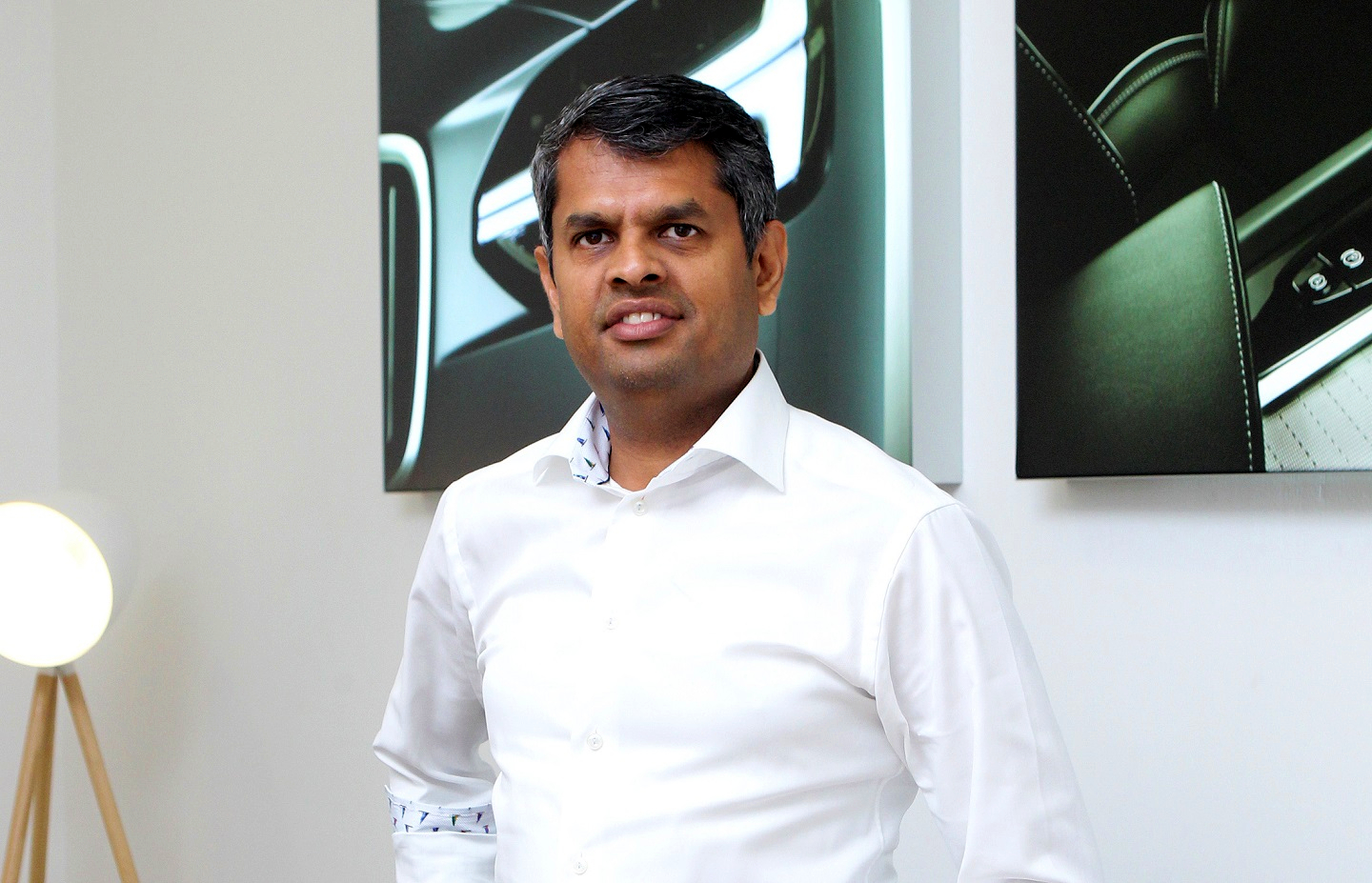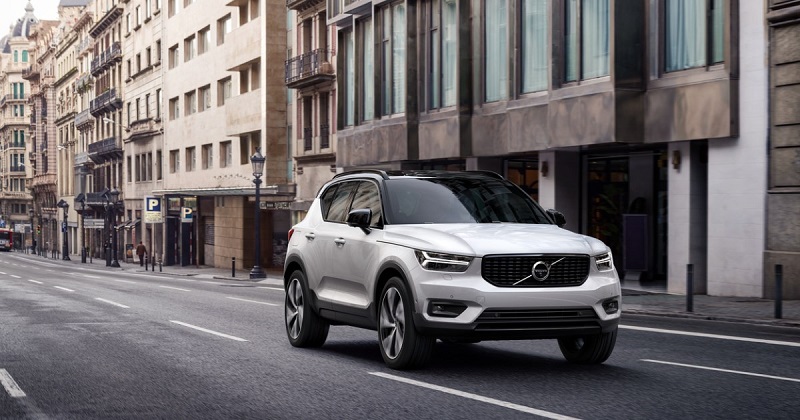
Nalin shares his plans for taking Volvo Malaysia to the next level as well as his views on the automotive industry (Photo: Kenny Yap/The Edge)
At a time when the car industry is seeing signs of a downturn, one carmaker is bucking the trend — Volvo Car Malaysia saw a 60% growth in sales in the first half of the year, after growing 35% last year.
Whether this is an encouragement or added pressure for any new managing director, it boils down to his disposition — is he a glass half-full or half-empty kind of person? After speaking to Nalin Jain, he comes across as more of the former.
When the self-confessed data and statistics guy shares his plans for taking Volvo Malaysia to the next level as well as his views on the automotive industry, his enthusiasm is tangible. His fondness for the country he will be calling home for the next few years is also easy to see.
“We’re from Mumbai, India, but we’ve been based in Gurgaon, Delhi, for the last few years. Kuala Lumpur is much easier than Gurgaon, I must say. It’s quite cosmopolitan, the diversity is nice and there’s a lot of respect for that diversity. I’m a strict vegetarian and I’m able to easily find food here … people understand. My wife is comfortably settled and that’s very important. She’s found her things to do — yoga, art class — and she’s found an NGO to work with,” Nalin says of his initial months here. Prior to this, he was group chief financial officer of Volvo in India.
It is not just a case of offering platitudes to his host country, he says, smiling. “Locals always underestimate what they have. I am not from here and when I look at Malaysia, it’s a great country. The infrastructure is amazing, especially if you look at the region in comparison.”
An avid driver, Nalin has taken personal trips all around the peninsula, from the coasts of Terengganu to Penang, Taiping, Cameron Highlands and so on, likely while listening to his favourite band, The Police, and Sting.
Of course, it is not all play and no work. Far from it. He has taken a hands-on approach to familiarising himself with Volvo’s operations in the country since he arrived. “I am an engineer, so for me, everything is based on facts and science. But I have also learnt that it is important to understand and sense — ‘sense-making’, as they say. So, I’ve been spending a lot of time with people, going around our facilities, factories, warehouses, even one of our suppliers … meeting my dealers, employees, partners. Talking to them, listening to them.”
Ultimately, Nalin says, businesses are run by people, not machines or computers, so understanding the nuances and differences of each market and culture is crucial. He adds that his new role requires a much broader but balanced view of things, one that goes deep into all aspects of the business. His natural sense of curiosity has served him well in that regard. “Whatever you do, you have to continuously be curious and ask yourself three questions — am I adding value to the customer? Am I adding value to my leaders through what I’m doing? And finally, am I adding value to the organisation and to myself?”
xc40.jpg

Nalin’s blueprint for Volvo Malaysia in the next three years is to elevate its customer service experience. “One of the reasons we’ve done extremely well despite the overall climate is that we’re seeing the fruit of the journey we started with the launch of our SPA (Scalable Product Architecture) cars here in 2015. Spearheaded by my predecessor Lennart Stegland, our XC90, XC60 and XC40 have been very well-accepted in Malaysia.
“The most exciting part is that we are on a good growth path, though maintaining it is the challenge. The next part is going to be customer experience because Volvo is not just about the product, that’s clear. I’m reaping the benefits of what Lennart had set up, and now it’s my turn to set up the next thing so that whoever comes next can build on that. That’s the cycle.”
Nalin summarises his blueprint to realise a premium customer experience in three pillars — people, process and technology. One supports the other, he says. “We are working on putting a lot of processes in place, bringing in the technology aspect — in terms of automating many of our services — so that people’s lives can be easier. For example, in servicing their car, how quickly can we turn it around? One hour? Half an hour? Fifteen minutes? How easy is it for our customers to book an appointment, let’s say?”
The aim is for the customer to say, “It’s easy to own a Volvo”, the MD emphasises. He references the services already offered by Volvo in Europe and the US, such as Care By Volvo, a pioneering subscription-based leasing service that offers a monthly flat-rate package, which includes a car, insurance coverage, concierge service, roadside assistance and maintenance — making it a one-stop convenient plan.
“For the customer, it’s just about putting in the fuel and go. We can bring that to Malaysia step by step,” Nalin says, adding that the leasing market here is still in its infancy. “We’ll need to add strong dealer partners going forward, followed perhaps by a strong leasing partner.”
The technology buff also believes that the potential of, say, blockchain technology and its function as a “digital ledger” will be a game changer for the car industry. “Imagine where the car will not only be a product but, like our phones, an entity whereby it can integrate everything into a seamless platform. You drive and you don’t need a Touch ’n Go card, the toll records your car and deducts from your linked account directly. Or if you make a booking for a restaurant through your car, it drives you there, and once you’re done with dinner, the invoice comes and payment happens without you needing to pay cash or use a credit card. Another thing is how a car transaction takes place, where everything — road tax, insurance, warranty and so on — can be paid with just one transaction. It would simplify a lot of things.”
That passion and far-sighted vision for the evolution of the automobile make Nalin a good fit for Volvo, which is well known for its innovations, particularly in safety and autonomous driving, which was unveiled earlier this year in a Vision 2020 launch in Gothenburg, Sweden, the home of the carmaker.
Commenting on its appeal in Malaysia, he says the fact that the first car built in the country was a Volvo speaks of its strong legacy.
“We have had a great starting point in that sense, in terms of brand knowledge, having invested 50 years in this country when we built the first car manufacturing factory here. Yes, we’ve had certain turbulence in terms of our business growth, but we have revived it strongly now. And Malaysians love their cars— that is what’s unique about the Malaysian automotive industry,” says Nalin.
It is why he is hopeful that despite the global impact of the US-China trade war and a sluggish economy, Volvo will continue to see good growth here. He also commends Malaysia for being one of the pioneers in the electrification of vehicles, and with the tax incentive policy coming up for renewal soon, he hopes the government will have the conviction to continue on the journey, to “send a clear message that this is the right thing to do”.
It may be early days yet, but Nalin — who says the V90 Cross Country is his favourite Volvo car, though he is driving his second favourite here, the XC90 — already has a goal for his tenure here. “If I can accomplish two things I’ll be very happy — firstly, a very high level of customer satisfaction and secondly, to double our segment share to about 15%.” Glass half full indeed.
This article first appeared on Sept 2, 2019 in The Edge Malaysia.


